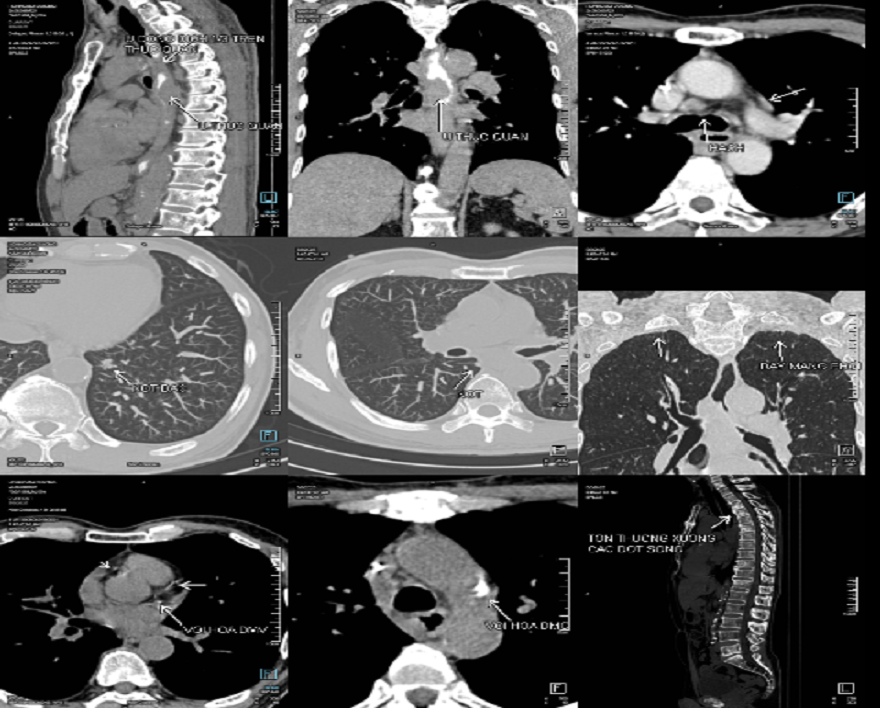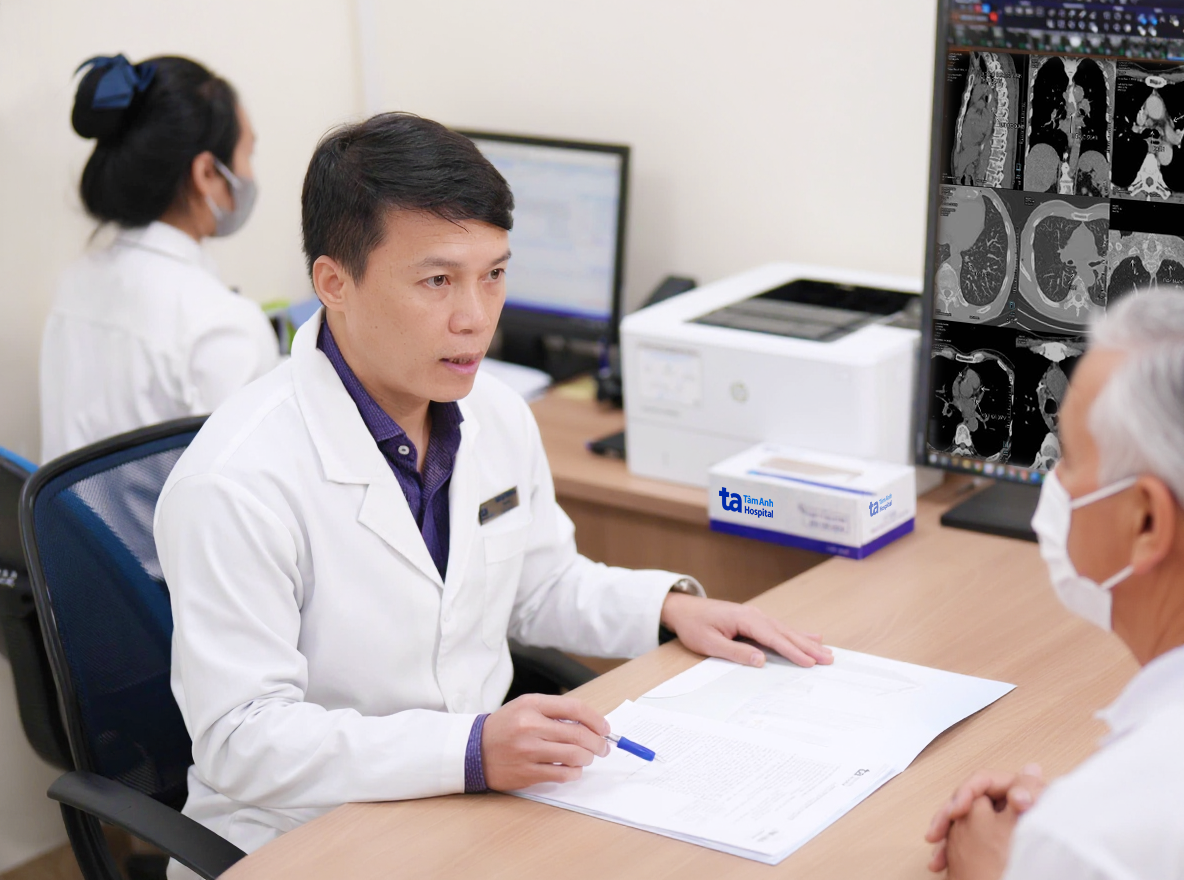Thirteen years after successfully treating non-Hodgkin's lymphoma in Singapore, Hung faced another cancer battle. Earlier this year, experiencing difficulty swallowing, fatigue, and weight loss, he sought medical attention at Tam Anh General Hospital in Hanoi. An endoscopy revealed abnormalities in his esophagus, and a biopsy confirmed esophageal cancer. A PET/CT scan further revealed the cancer was advanced, with widespread growth and metastasis to lymph nodes and both lungs.
 |
Hung's PET/CT scan reveals esophageal cancer spreading to his lungs. Photo: Tam Anh General Hospital |
Hung's PET/CT scan reveals esophageal cancer spreading to his lungs. Photo: Tam Anh General Hospital
Dr. Ngo Truong Son, deputy head of the oncology department, prescribed a treatment plan that included a nutritional regimen to improve Hung's physical condition, placement of a central venous catheter, and 6 cycles of chemotherapy.
Hung consulted with doctors in Singapore, who proposed a similar treatment plan. Considering the significantly lower cost of domestic care – about 1/10th the price in Singapore – and comparable medical expertise and equipment, Hung decided to stay in Vietnam for treatment, despite his family's preference for overseas care.
Over the past 6 months, Hung diligently followed Dr. Son's treatment plan, completing all 6 chemotherapy cycles. A follow-up PET/CT scan showed an 80% reduction in the esophageal tumor and a noticeable decrease in lung metastases. Dr. Son assessed Hung's response to chemotherapy as positive and transitioned him to maintenance therapy to enhance his quality of life.
Hung's health has significantly improved. By the third chemotherapy cycle, his swallowing difficulties had subsided, and after the fifth cycle, he was able to eat solid food again. "I feel much better," Hung shared, noting he has regained weight, is in excellent condition, and can now enjoy sports and travel.
 |
Dr. Son examines Hung. Photo: Tam Anh General Hospital |
Dr. Son examines Hung. Photo: Tam Anh General Hospital
The Ministry of Health estimates Vietnamese patients spend 2 billion USD (over 52,000 trillion VND) annually on medical treatment abroad. However, with advancements in domestic healthcare, including modern equipment and access to the latest generation of treatments, more people are choosing to stay in Vietnam for care. Beyond medical expertise, hospitals are also prioritizing improved patient care. The lower cost of examinations, tests, and treatment in Vietnam, coupled with comparable quality, proximity to family, ease of travel, and absence of language barriers, make domestic healthcare an increasingly attractive option.
Thanh Long
*The patient's name has been changed.
| Readers can submit questions about cancer here for doctors to answer. |












